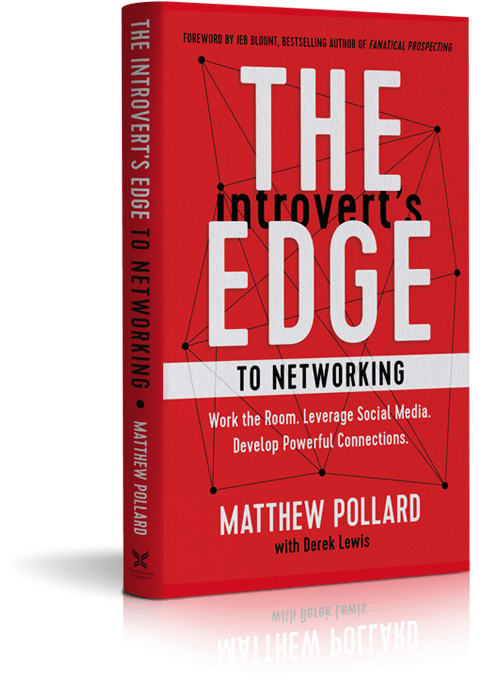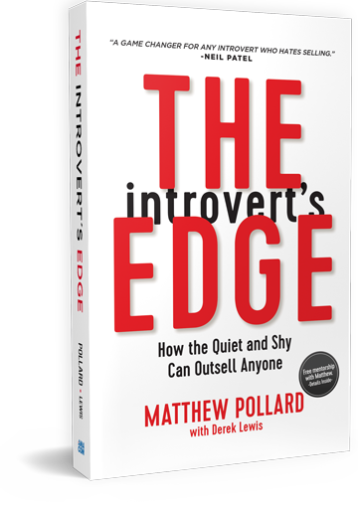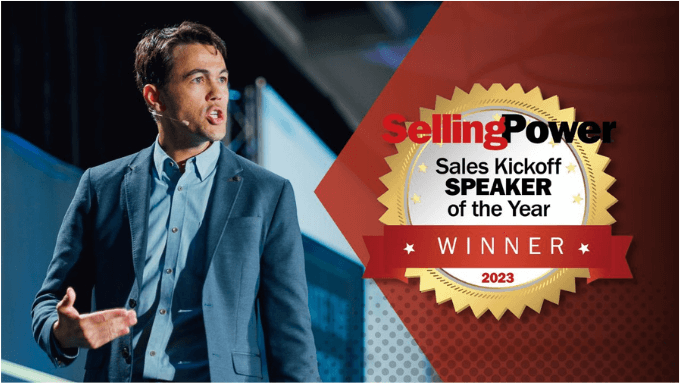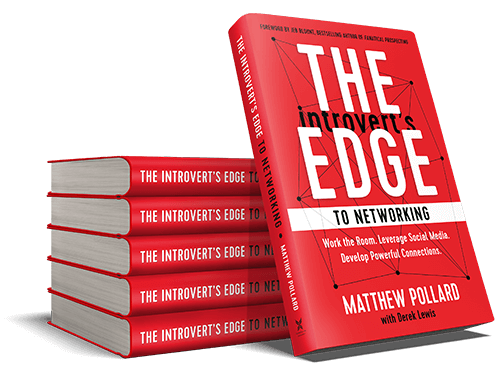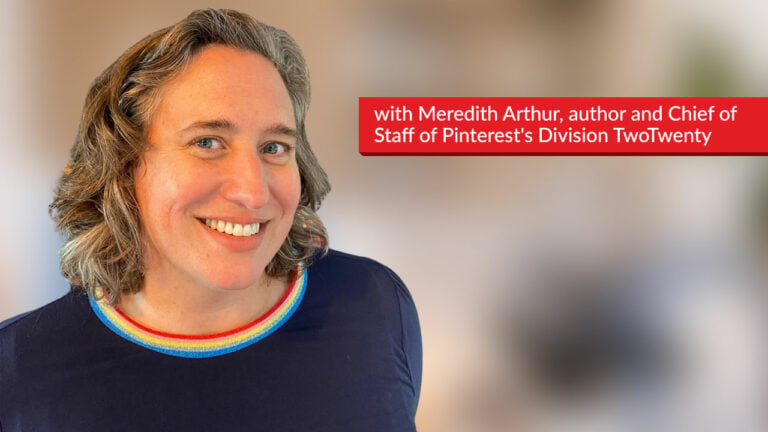Money Mindset, Personal Growth, and Transformation
Matthew: Hello everyone and welcome back to the Introverts Edge podcast. I’m ecstatic to welcome our next guest, Denise Duffield Thomas, and she is the author of so many books that have all hit the bestseller list. She is a money mentor and she actually has an amazing bootcamp called The Money Bootcamp that she’s had over 9000 people attend. She is a superpower and she is an introvert, which is, you know, only introverts come on this show. So the focal point for us first is because her number one thing that I heard on one of her podcasts, actually, that I would absolutely recommend you check out, is that nobody believes that she’s an introvert. And I will tell you, because we as introverts tend to project extroversion on anybody that seems to have a natural ability to communicate.
Let’s test that a little bit. So, Denise, thank you so much for joining us.
Denise: Well, hasn’t it been fun having a little chat before we hit record? Two introverts. We had a lot to say to each other, didn’t we?
Matthew: Well, that’s it. You know, and I always I always have a laugh about when people say that as introverts, we can’t, you know, talk and communicate, try and get an introvert to stop talking about something that they love or that they really enjoy. Even a major introvert like Bill Gates can have a lot to say if you get him on the right subject.
And it was really great to connect with you on the fact that you really your frustration that so many people don’t see you as an introvert and that just because, you know, you’re on social media and you’ve got a couple of you know, you’re a seven-figure business owner.
And it is really difficult for a lot of people that could never imagine being on stage, on social media to really kind of comprehend. So what I want to do and we’ll get to talking about how you got to that stuff later on in the show. But what I’d really love for you to do is just to share a little bit about your kind of introverted roots and help us really understand kind of how you got to the point where you actually got to be an introvert.
Limiting Beliefs and Subconscious Beliefs around Introversion
Denise: Well, I didn’t know I was an introvert for a long, long time. And actually, it was a really big surprise to me at first, because I was a performer growing up, I was a dancer, I worked as a children’s performer as well. And so I was used to being on stage. But I always I thought there was just something a little bit wrong with me and I couldn’t quite figure it out.
I would go to parties and I’d just want to go and sit in the bathroom for a little while. And so definitely as a teenager and then in my twenties, I really started to feel that internal struggle around being around a lot of people. And for me it manifested as this sense of imposter syndrome. I thought that that was stage fright, really.
Instead of realizing that it wasn’t, that I was just pushing through because the show must go on and I needed to respect that need for recharging and rest. And so it was just kind of a bit of a shock and I think I found out maybe even in my late twenties, I was, you know, always a personal development junkie.
I started to love reading different personality tests and things like that. And that’s when I went, Oh my God, I’m an introvert. And I think now it’s, you know, I’m completely accepting of that. But it still is a surprise for people because I think of that performing background and also because I’m a really confident person and I think still people have that perception that there’s only one way to be an introvert.
And for some people, they think it’s someone who’s very quiet or nervous or shy, and I’m none of those things. But my introversion now is something I really cherish as self-knowledge.
Matthew: That’s that’s right. And I actually I’d love to kind of open up a little piece of what you just said there, because I think a lot of people feel like there’s something wrong with them, which I didn’t hear with you. I heard the imposter syndrome. But then when they discover that they’re an introvert, it’s not a liberation moment, which is kind of what I hear from you.
You discovered it, but it didn’t stop you from becoming the person you now are where a lot of people feel like now there’s a word that explains why they can’t succeed. And I think that you’ve been able to break through a lot of that. Is it because you had that performance background that you now know what it is I can manage that move forward?
Or is it because you were unwilling to let that word define who you were?
Introverts Tend to Find A Workaround
Denise: Well, for me, it wasn’t a sense of like, oh, that’s why. Because really, I thought I was just really nervous and nervous about public speaking. But actually, I remember one time when I was a kid, you know, when, you know, your parents say you like do a little dance for everyone or play your instrument or whatever. And my cousin got a new video camera and she was like, Oh, do a dance and I’ll record you.
And I remember saying, You can record me from the back. And it was always this like real boundary of going, I don’t want I don’t need to be the center of attention here. I don’t want to, but I’ll do it. And I felt like that was the same with all of my experiences. Also, I don’t enjoy public speaking.
I don’t enjoy being on the debate team, but I’m just going to push my way through it. And actually, it was it was a real relief in my children, children performing career where I started to do suit work. So that’s when you’re inside a costume. Yeah. And for me, I was like, I justified it going, Oh, this is great.
Now I don’t have to worry about my weight, you know, and looking a certain way. And I was like, This is a really smart way of still being a performer. But now I realized that it was because I almost needed a bit of a shield. And I think that’s why I mean, how great is it that you and I, as introverts we live in this time where if we want to, we can be performers, we can, you know, help a lot of people.
But we have a shield. You know, I’m sitting in my office in Australia. You’re in North Carolina or South Carolina? I can’t remember what you said. And no, I think and I’m just looking at a piece of plastic, you know, on my computer. And it’s I think it was just that realization of going, oh, I don’t like doing things a certain way, but there’s always a workaround.
And now obviously I can do it from knowing that I’m an introvert, but I think it just took me a little trial and error to get there. But I never felt like it was a bad thing for sure. It was. It was a relief, honestly, to have a label. Also, one thing that I think is important to mention is that I have ADHD and I was only diagnosed a year and a half ago and that wasn’t a bad thing for me either.
That was an immediate relief of having a label to explain, but also a thread of research to to get more information about how I can thrive. And now, just as an introvert, I go probably like, here I go, I’ve got a speaking gig. I’ve got recovery. And it’s, it’s just in there. Whereas, you know, as a teenager, as a performer in my early twenties, I was just kind of white knuckling through it and just forcing myself to do it, even if it felt bad.
Many Introverts Feel They Need to Pretend — You Don’t!
Matthew: I think that’s a really important point because I feel like a lot of people, they think that they, to be successful, have to behave like those extroverts because we favor extroverts. And what I’m hearing from you is that you tried that and it felt really uncomfortable. And then you found a way to do it in a way that was comfortable for you.
And part of that has been about creating and I’m going to use the word healthy boundaries, because it’s not that you don’t do interviews, it’s that you love the fact that you can do them in this setting. And we had a conversation beforehand around you as an introvert and picking and choosing your time is and at the moment you’re feeling more in an introverted place, which is why you’re so glad that you recorded all these videos previously.
So I think that’s what’s really important for people to hear. It’s that firstly, you were terrible at being extroverts. We’re just not. And that’s why we feel like we’re trying to survive in an extroverted world. That’s only because we’re leaning into behaving extroverted. If we choose to lean into who we naturally are, then we get to make choices, we get to set boundaries.
And that is profoundly powerful. And I know we’re going to be talking about at the quietly influential summit coming up, really about how we can set some of those boundaries and how to really, you know, own our energy. And, you know, we had a lot before we started this really about, you know, some of the things that we felt uncomfortable doing and comfortable doing and how we leaned into that.
And I’m really looking forward to having a dialog around you moving away from networking and me, you know, talking about what we have to network so we can get out of networking. But what I really want to focus on today is because I just have this general sense that introverts in a lot of ways feel uncomfortable charging, whether they they come from a religious background where they’ve heard for those that a lot of given, a lot is required.
So they feel uncomfortable or whether they just don’t feel comfortable charging because they kind of devalue themselves. I know that. I mean, you talk about money mindsets considerably and all your work. And I know that introverts had some unique challenges with that. But what I would love and I know we’ve got some specific examples we discussed, but what I would love for you to do first, you just kind of really help the average introvert listening to this perhaps doesn’t think that there are money hurdles in their head that is stopping them from charging.
They just think customers won’t pay them what they’re worth, perhaps allow them to to look at themselves a little bit and do a bit of a self audit first.
Are You Charging Enough Money?
Denise: Well, that’s, I think where introverts do have an advantage here around this money mindset work because I do think we are naturally good at finding connections and being curious about things. And so this is where my money mindset career really started, is this curiosity of why we act the way that we do around money. And you know, you’ve already touched on one, right religion.
So there so many layers to to our own money mindset. It can come from our family, our family legacy, because sometimes our money mindset issues aren’t even of our generation. You know, they’ve been inherited in very, very subtle ways. There’s their time and the era that we are born into, what messages we receive about, particularly women and money or just money in itself then is our industry that we choose to go into.
Different industries have slightly different money blocks. Then there’s culture. So I love bringing together different groups of people. And you know, you and I are both Australian, but we work in a very American culture, right? 70% of my clients are American even though I don’t live there. But I had a big discussion with my British clients recently in a roundtable talking about, well, let’s look at the values of Britishness and how this could be impacting your money mindset.
And one little nuance in that is this idea that British people love queuing up. They love politely waiting their turn. How are you supposed to succeed and, you know, push yourself forward in business when every single part of you is wait your turn, wait your ticket, don’t surpass other people. And it’s those little nuances that really interest me.
And this is lifetime work, right? I’ve been doing this full time for over ten years and I still find those little nuances. But the key is to understand, connect the dots to how this is impacting us and then find ways to interrupt that pattern to form new beliefs about what would be possible. And I’ll give you another religious example, too.
So you said, what did you say? What was the much…
Matthew: To whom a lot is given, A lot is required. So what I can say is I’ve had people that feel uncomfortable charging or keep trying to help people that have no money, even though they didn’t really ask for the help or didn’t find it that much of a priority just because they felt like because they knew this stuff, they had to share it.
Denise: Got it. And a similar one that I’ve heard around that it’s it’s more blessed to give than receive. And so if you grow up, you know, all of us grew up in the water of our family history and something like that sounds beautiful. And it’s a it’s something that I live by. I do I believe I mean, my tagline for my business is Make money, change the world.
Yeah.
And so that’s a really strongly held value for me. But where we can sometimes take this too far is if you have a receiving problem, it’s really hard to receive money for something that feels good or that’s something that’s easy for you or something that’s fun. And I really think not only is that, you know, such a pervasive problem, one thing I think I mean, I don’t know how old you are.
I assume you’re similar. Age to me is that those of us who grew up with an analog childhood, we see the relationship between work and money as it’s 1 to 1 thing cause and effect. You work, you get paid, you sell an hour, you get paid an hour, you sell a widget, you get paid for the widget. But somewhere along the line for me, it was when I was literally like 18, 19, where my brains already pretty much formed my beliefs about money and work.
Suddenly we’re allowed to make money and the relationship between work and effort and reward is broken. So it’s like our brains cannot compute the fact that you can work for an hour and potentially get paid forever like the math doesn’t math, you know. And so that’s just one layer, as I said, the era that you grew up in.
But I think it’s it’s just such a key part of entrepreneurs that I see today is that we just can’t get our heads around the fact that the effort and reward has no discernable role equation anymore.
Matthew: I think that’s really a really important point, especially for those people that perhaps are they have mission based businesses or there are a lot of coaches that perhaps don’t consider themselves mission based businesses. But I mean, I’m on a mission to help introverted service providers and predominantly help them realize they’re not second class citizens, that their path to success is just different.
And my focus, because I believe there’s something really honorable about a person that has enough belief in themselves and a talent of skill to go and start their business on their own. And I believe those people need to be protected. So because of that, I’m on on this mission to help these people realize that if they just focus on their functional skill, they’re going to have a really tough time.
They’ve got to focus on these things outside that may not feel comfortable, but it’s going to allow them to have their own rapid growth business. So when I’m on that mission in my head, I say missions cost money and missions cost money. So if I want to help as many people as possible, then I need to make money.
Now, of course, I choose how much of that money get spent on new content generating new programs, new courses, and how much gets paid to me. Because in truth, if I don’t eat, I’m not going to be doing it for very long. So when you start to get people to understand that, what I find is that’s liberating for them because they feel for the first time, oh, you right, I got to earn money.
And then all of a sudden they are helping people in a different way and their families asking them for help and they never had before because they’re like, Well, no, no, you’re all over the place. I don’t want to ask you for help. Everything shifts. And it’s just this is just one of these factors. And I know you talk about money scripts and, you know, I had one client that had a he had this family experience where he’s his mother was amazing.
But divorced and struggled. And he’s an Australian actually as well. But she had $100 that she was going to spend on them having just this amazing weekend. And then she lost that $100. She misplaced her purse and she lost that $100 after they got to the location. And the longest time this this guy, John, struggled because any time he felt like he got a client or if things were going really well, he felt like he was going to be ripped away from him.
And it all ties back to this experience of this happening. So I’d love for you to share kind of how these money scripts start and how simple and how irrelevant these things can be that drastically affect the whole rest of our lives.
Money Scripts and Money Beliefs
Denise: I mean, you’re right, sometimes it is one little thing. And so that’s why actually when people join my money boot camp, one of the first exercises we get them to do is an inventory of their money memories. And what’s fascinating is that there are even multiple layers of that because sometimes there are surface memories. But then as you understand more about the nuances and how they’ve affected you, you’ll you will see things in a different way, but you will remember things in a different way, too.
So I would say that even like before kind of conscious memory, a of money story that we all share, those of us who grew up again in an analog like paper currency or, you know, physical currency world, the same thing that I did to my daughter. I gave her $0.50 at the market and said, go buy an apple.
And I was like, Look at me teaching my kid about, you know, spending her own money. I was like, yay. And she went to put it in her mouth like all kids do. And I said, Oh, my God, you put it in your mouth. Money is dirty. And not only was I saying money is dirty, but I was really visibly upset.
And her whole body, she was like this. And I went, Oh my God, we’ve all had that experience. We’ve all had that experience of being shouted and yelled at and a real nervous system jolt. And I would say that’s something that most people share because that’s what kids do, right? If they put money in their mouth. And in that moment, I realized that, you know, you have to deal with that nervous system, fear that real, like primal thing of getting into trouble around money.
And then everyone’s stories go off in slightly different directions. You know, some people have self-worth issues because they heard their parents fighting about alimony and child support. Some people have trust issues because someone stole their money. Some people have self trust issues because they lost money. Exactly as your friend. I’ve heard that one so many times. Some of us have this vague feeling that something bad is going to happen because we’ve seen, you know, divorce or fights or things like that.
And some of it’s just so primal. I hear from people that they have guilt around money and ease because they have, you know, grandparents who lived through atrocities or didn’t survive. They almost have this thing of who am I to have this beautiful, easy life. And so it really comes down to, you know, I have to work really hard to make money.
It’s not safe for me to have money. And especially when you’re mentioning about the different industries and mission, I, I meet so many people who feel like they can help people or make money, but never both. And, you know, sometimes I’ll have people now they say, Well, that’s great. I love your money mindset work, Denise, but it’s different in my industry.
You know, I work in the female pelvic floor industry. I’m a dance teacher, I’m a naturopath, you know, I do this, this and this. I’m not I can’t just charge what I want, but it really does come back down to those early experiences. And so that’s why so much of the pattern interrupting work that I do is, yes, to acclimatize yourself to more money by surrounding yourself with wealthier people and all those things.
But you have to deal with that real basic nervous system shock. And that’s why I do things like tapping the EFT, which, by the way, perfect for introverts, for nervous, for nerves, but things like that, tapping can can kind of reset your nervous system around money because we didn’t have that early good experience. We don’t associate it with good things.
Matthew: Yeah, I think it’s really important for people to understand this because look, I know that I had many money hurdles as as I grew up and I actually remember school project when I was in high school and I made too much money and my principal didn’t like that because I made I mean, I made thousands of dollars. We were supposed to make $50 or lose $50.
And I mean, I pretty much put no effort into it. I basically bought McDonald’s to the school. We were miles from McDonald’s and got them to deliver it, and I got a discount. They charged a small amount higher, and I got called into the principal’s office for making too much money and all of a sudden I had this feeling about, okay, if I make too much money, that’s a bad thing.
And also that things, you know, the shoe could drop at any moment. And the money I made could get taken up because the the middle ground that we agreed on, well, I just donated the money to Ronald McDonald House and bought him a receipt. I think he wanted me to give him the money to the school. But, you know, I found a compromise I was comfortable with, but I lived with that along my entire life.
And I think that this concept of money is the root of all evil. You can’t make too much money. In a lot of ways. This gets in the way of the people that truly care about serving others because they you know, I mean, I got diagnosed with early syndrome when I was a 16 year old child and or teen ager, I should say.
And it meant that miraculously I could learn to read. And my mother had to look for this. They had to she she read every paper and every study she could find to discover this thing called Irlen Syndrome. And then they charged me basically nothing on my mother, basically nothing to give me these I would have loved for them to charge ten times more, because then they could have afforded to spend money on ads or videos that went on social media to get the message out.
So, so many other people didn’t have to struggle like I did for so long. Or perhaps that had mothers a little bit less supportive of fathers that were a little bit less supportive to discover that and I think this is where people get wrong. They’re like, Oh, I could never charge that. Or, you know, I charge $20 an hour when I was in an administrative job.
Forget about the fact that you got paid every hour where business owners can’t because they’ve got to get clients, they’ve got to run their business. So best they’re going to get a third. But they still so tell themselves, well, I used to charge, I used to get 20, I’m now going to get 25. So what I would love just before we finish up is if you can I mean, there’s a lot there, one pack.
Rewriting Scripts for an Abundance Mindset
And what I really feel for the people that that are listening, what would be really helpful is perhaps a little bit of advice on how to come to awareness. I know you talk about forgiving that, but then also how to start the process of kind of transitioning and getting people in their own way.
Denise: Oh, absolutely. So I do recommend making an inventory for sure of money memories, because I think you start to see themes. And again, I do feel like introverts are very self-aware people. It’s part of our personality type. I think we like to see pattern patterns in things naturally. So I think even just that exercise in itself can be such a big awareness thing to have compassion for yourself and say No wonder, like no wonder.
I feel this way about money. It’s not just how I’m wired, it’s how I’ve been conditioned. So that can be very powerful, an affirmation that I think really, really helps in this is I serve. I deserve, I serve, I deserve. Because it makes you realize that giving and receiving it has to be both, because otherwise you get stagnant, you get resentful, but also actually you can’t help as many people.
So when you do things like setting boundaries, working on your money mindset, charging appropriately for what you do, creating passive income products, all of those things, you’re doing it to buy back bandwidth, which is way more important to introverts than almost anything else. So you can help more people. Otherwise, your impact is really, really limited to the units of energy that we have, and we have less of that than other people.
So we have to embrace those tools if we truly want to help people. And so I serve, I deserve is such a great pain interrupter for anyone who has those guilty feelings. And, you know, just one word on that. If anyone’s listening and you work in a nonprofit so many times, I am I love giving away money. And sometimes even just like there’s no donate button on there, you know, and you could have something that is like it feels good for people to give and it does.
It feels so good, right, to give money. And so it’s almost that feeling, too, if, you know, I’m gifting people the opportunity to to feel good. And so sometimes we just have to, you know, we’re good about about not making things about us. But it’s always like sometimes we go too far. And so we’ve got to flip it around again to be like, I serve.
Why does that make money change the world? And yeah, that’s that’s going to really help, I think everyone to get over those money blocks.
Matthew: I think that’s really powerful. I mean, I for always, always said missions cost money and if I’m going to serve, I need to make money. I love that I serve. I deserve I serve, I deserve. And I what you’ll find for everyone listening, people that are successful, they tell themselves the things that they need to hear, not lies.
The truth I serve I deserve is the truth. Missions cost. Money is also the truth. We’re not lying ourselves. We’re reminding ourselves of what’s actually important because at the end of the day, I have to make money. Because if I don’t make money, well, firstly I don’t eat. But even to a high level, I can’t afford to make mistakes.
So when I create a product and it doesn’t go well, that’s it, the business is done. Or if I want to go to a conference, I can’t. So I can’t personally, personally develop myself. You have to serve. If you serve. Yes. You do deserve. But also you get to serve more because of it. I mean, research shows it. There’s a study out of the University of North Carolina that talks about the fact that we have to tell ourselves three positive affirmations for every negative thing that we tell ourselves and think about how many times we say money is the root of all evil.
I could never charge that. People won’t pay that if you keep telling yourself these things, you forever getting in your way. I mean, there’s a another study that talks about the fact that we tell ourselves 12000 to 60000 things a day. If you don’t believe that. No. That you talk to yourself at the equivalent of an hour’s worth of conversational dialog every every minute.
So you think about how dangerous that is. If you’re telling yourself, I don’t deserve, I don’t deserve, I serve, I deserve. If you can take on those messages and start to reprogram your brain, you will get to serve more people. But you have to remember that if you don’t make enough money, you don’t bounce, and therefore you can’t serve anyone.
And if you don’t make enough money, then eventually you’re going to give up because no one loves serving others forever without ever getting some form of stability in their own life. So Denise and I, we’re going to be jumping over to the quietly influential summit. If you haven’t registered for that yet, make sure you do. You can go to the quietly influential summit dot com.
We’re going to go a lot more into Denise is amazing at setting boundaries and making sure there’s a unique story she has about feeling uncomfortable about getting paid to speak, which were definitely going to get into because that really fits into that she was serving, but she still felt undeserving. So even people that teach this stuff can make mistakes and we’re always learning and we’re always growing.
So I can’t wait to get into that interview. But today, Denise, I know you’ve got a ton of great resources and a way for people to understand and do a little bit more of a observation of the bad manuscripts, Wiccan, people that are really interested in this specific topic and really identifying those those gaps for themselves. We can find out more about you and how to do that.
Denise: Well, I’m super easy to find. I’m denisedt.com and @DeniseDT on all social media but if everyone goes to denisedt.com/blog-home you’ll get a free you know a very short webinar about seven specific money blogs of entrepreneurs. And I think that in itself helps people to understand because sometimes people say to me, I don’t have any books, and all we have to do is honestly scratch the surface just a tiny bit.
And there’s no shame in that. I have a lot of money books that I work on all the time too. Even though I make millions of dollars. So yeah, denisedt.com/blog-home is such a great place to start.
Matthew: I would definitely check that out to everyone that’s listening and check out her books as well. The I mean, go look at the ratings. There’s just five stars everywhere. And the biggest thing that I can always suggest for introverted people, just like Denise, discovered, probably a little bit too late, I’m sure she would have wished she discovered earlier that she was an introvert because then she could grow from there, not embarrassed for herself, but grow from there.
If you’ve got money blocks that are unconscious, they’re hurting your ability to support your family. They’re hurting your ability to pursue your mission and help others. And they’re just making life a lot more stressful for you and everybody else around you. So definitely check out those resources. And to keep this energy going, make sure you go to the quietly influential summit register for that because we’ve got some amazing speakers, including Denise, that are going to go deeper into some topics around making sure that, you know, you absolutely do.
Amazing as as an introverted entrepreneur all because look at everywhere there are titan introverts everywhere dominating and all of these so-called introverted arenas. But for today thank you so much for joining and I look forward to seeing you on the next episode of The Introvert Edge podcast. Cheers, everyone.







